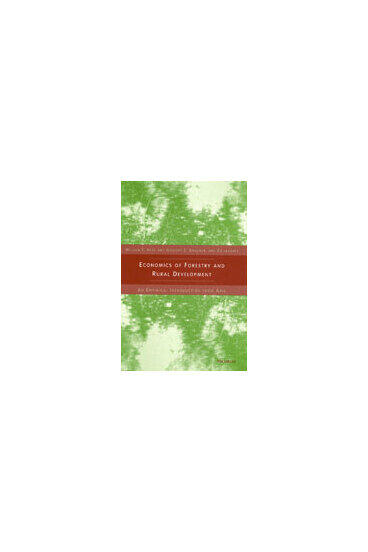Economics of Forestry and Rural Development
An Empirical Introduction from Asia
An empirical overview of social forestry in Asia and how it relates to community development and household behavior
Description
Economic development and forest use, with special emphasis on understanding the components of forest degradation and exploitation in developing countries, is the focus of this book. Contributors, mostly from South or Southeast Asia, examine deforestation and tenurial rights, linkages between migration, poverty, and resource exploitation, technology diffusion among poor-subsistence households, fuelwood and energy collection pressures on open-access resources, government and public investments, and household models of labor choice and its impact on resources. Emphasis is on empirical investigation of these problems, though some conceptual material related to resource exploitation, rent distributions, and household economics is presented.
The book is the first to study household resource rent models within a developing-country forestry context. The empirical models are motivated by specifying and formally testing linkages between labor, time, and other input decisions. The book also is the first self-contained study using data from several countries to study a common set of problems such as forest use pressure, the relationship between forest exploitation, household allocation of time, and rents, the adoption of technologies to mitigate exploitation of forest resources, and the importance of population pressure and spatial aspects of deforestation.
The book fills a niche by bringing rigorous economic theories and hypothesis testing to social aspects of resource use. It will be of interest to a range of professionals, from academic economists working in forestry and development to resource policy professionals at international development agencies, especially those struggling with developing incentives to reduce forest degradation.
William F. Hyde is Professor in the Department of Forestry, Virginia Polytechnic Institute. Gregory S. Amacher is Associate Professor in the Department of Forestry, Virginia Polytechnic Institute.
William F. Hyde is Professor in the Department of Forestry, Virginia Polytechnic Institute.
Gregory S. Amacher is Associate Professor in the Department of Forestry, Virginia Polytechnic Institute.

